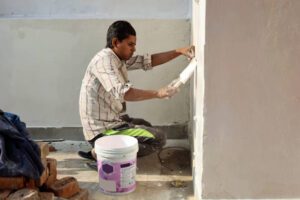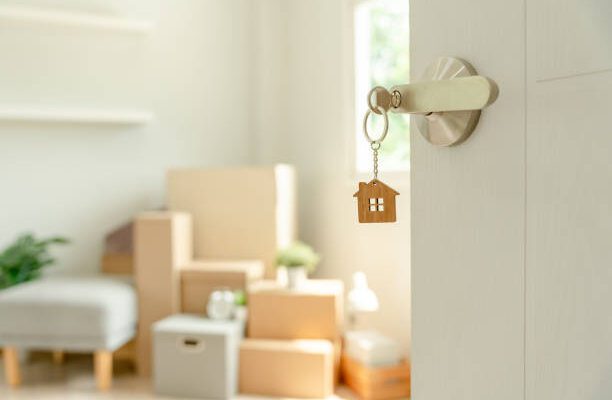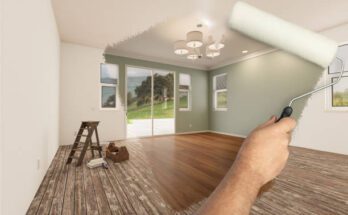One of the most gratifying experiences is moving into a new home and having your own private area. However, there are a few obstacles to overcome before you get there. For example, looking for a property can be stressful if you don’t have an agent’s contact information, the phone numbers you are obtaining online are scammers, or you don’t know where to start.
When relocating to a new home, there are many things to take into account, many of which are influenced by your preferences and situation. So, before moving into a new home, be sure to verify the following:
Location of the new house
 (Photo from istock)
(Photo from istock)
When seeking to move into a new home, this is typically the most important factor to take into account. The location should comfortably accommodate your needs; ideally, you want the majority of the locations you frequently visit—from your workplace to the children’s schools—to be close to your home. This reduces transit costs while also avoiding lengthy commutes and/or pointless traffic.
Think of additional amenities including medical centers, grocery stores, and entertainment venues. Most importantly, great locations bring people of a particular class closer together, allowing for networking opportunities.
Choose a place that suits your needs and achieves your objectives. Keep in mind that location is crucial because rent varies greatly depending on where you are. Therefore, you might wish to look into a location that fits inside your spending limit, which takes us to the following point.
Cost
Rent shouldn’t be more than 20% of your total income, as a general rule of thumb. By doing this, you may pay your rent and still have money left over for other expenses without putting an excessive amount of strain on your finances. A financial audit is crucial for homeowners to assess how much they can truly afford to spend and whether they can get financing to cover the expense.
Financial restraint is essential in this situation; look for a nice home that fits your needs without breaking the bank. People frequently uproot themselves to bigger houses or swankier neighborhoods just for the bragging rights at the expense of their budgets.
Security in the new home
 (Photo from istock)
(Photo from istock)
Everyone wants to live in an area that is safe and secure, where they can rest easy knowing their family is safe. A place where, even if you worked late, you could still safely return home. If you can’t find peace of mind, investing in a new home might as well be for nothing.
For instance, gated communities and places within the UN Blue Zone typically have strict security standards, and the presence of a police station or other government or diplomatic activity typically increases an area’s security. Tight security manifests itself in other ways as well. CCTV cameras and the presence of security guards are two key elements that encourage tight security in apartment complexes. The other thing you can do is talk to locals about the security of the neighborhood; this will give you a first-hand account from someone who lives there.
Water supply
Life is water. Before opting to reside somewhere, be aware of the water supply there. Is the municipal water system trustworthy? Does water rationing take place there? Do you need to dig a borehole or purchase a tank? How is the water supply affected during the dry season? You may plan yourself and prevent unpleasant surprises by asking yourself these questions.
Electricity
 (Photo from istock)
(Photo from istock)
You’ll be excused if you don’t give electricity much thought because it appears obvious in the modern world. But not everywhere is like that.
Does the home and the neighborhood where you’re relocating frequently experience blackouts? If the answer is yes, you should think twice. If this is a compromise, you’re willing to make, you might want to think about switching to a backup power source. An unstable electrical supply may be fatal in a world where many people work from home and the fridge is loaded down with tonnes of food.
Repair and maintenance of new place
You are curious about the climate in the general vicinity of the new home. Is it too chilly? Do you need to buy a heater? Does the area flood when it rains? You don’t want to reside in a flood-prone or riparian environment. Investigate how various weather patterns may impact the neighborhood of the house you want to move into.
When searching for homes to move into, keep these points in mind generally. From there, there are some further details for repair and maintenance to focus on.
Repairs and maintenance
 (Photo from istock)
(Photo from istock)
This is a crucial consideration when relocating to older homes. They could necessitate more meticulous upkeep of the home’s original fixtures or features, which is typically more expensive. Before considering purchasing a new home, find out what the servicing fees would be.
Another crucial factor is the standard and condition of a home’s finishes. There are certain things that may be ignored, and there are some that you might be prepared to modify, but there are some homes where the finishing is so subpar that the cost of renovation is out of reach.
Leaks and fixtures
Look for any plumbing or water leaks. You don’t want to go to sleep at night and discover your home is flooded. Make sure you are familiar with where the gas and water shutoff valves are before moving in. Check the locations of the circuit breakers and the fuse boxes for all the lighting fixtures. In order to make sure everything is in working order and that you are aware of them in case of an emergency, do this.
Surroundings and environment
 (Photo from istock)
(Photo from istock)
We have relocated folks to a new place that was really beautiful, yet they had to leave after only a few months for the reasons listed below:
Evenings are not quiet on the street. There is too much activity in the vicinity, such as a busy nightclub close by, which prevents any sense of tranquilly. The home is on property that is in dispute (with the government, NEMA, etc.) and is occasionally slated for demolition.
There is a persistent sewage line leak in the vicinity that fills the house with a foul smell. During the wet season, the compound is vulnerable to floods.




